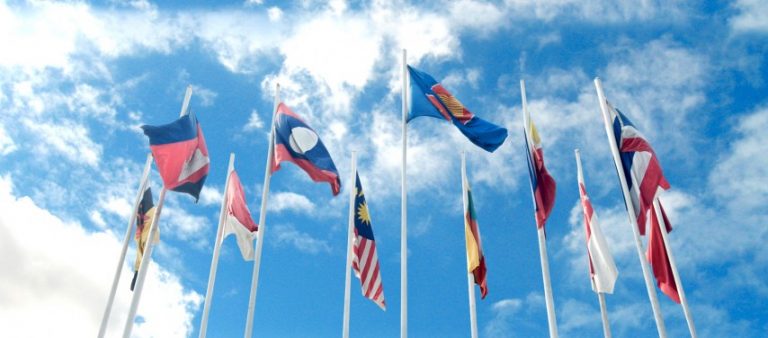We, the Heads of State/Government of the Member States of the Association of Southeast Asian Nations (ASEAN), People’s Republic of China, Japan, and the Republic of Korea, on the occasion of the ASEAN Plus Three Summit held in Singapore on 15 November 2018;
Reaffirm our commitments to the UN2030 Agenda for Sustainable Development to fight malaria, HIV/AIDS, tuberculosis, hepatitis, the Ebola virus disease and other communicable diseases and epidemics, including addressing the growing threat of antimicrobial resistance (AMR) and neglected diseases affecting developing countries in particular; while reiterating that AMR challenges the sustainability and effectiveness of the public health responses to these and other diseases as well as gains in health and development and the attainment of the 2030 Agenda;
Welcome the United Nations’ (UN) Secretary-General’s recent official establishment of the Interagency Coordination Group on AMR, in relation to the Political Declaration of the UN High-Level Meeting of the General Assembly on AMR in 2016;
Reaffirm that the blueprint for tackling AMR is the World Health Organization (WHO) Global Action Plan on Antimicrobial Resistance, which was developed through the collaboration with the Food and Agriculture Organization of the United Nations (FAO) and the World Organisation for Animal Health (OIE) through a One Health Approach;
Acknowledge the adoption of the ASEAN Leaders’ Declaration on Antimicrobial Resistance (AMR): Combating AMR through One Health Approach during the 31st ASEAN Summit in November 2017 to engage in a multi-sectoral and multidisciplinary collaboration to develop an ASEAN strategic plan to combat AMR;
Reiterate our support of ASEAN efforts to realise an ASEAN Community that is people-oriented, people-centered and socially responsible with a view to achieving enduring solidarity and unity among the peoples and Member States of ASEAN, and forging a common identity and building a caring and sharing society which is inclusive and where the well-being, livelihood, and welfare of the peoples are enhanced;
Note with concern that AMR, a multi-sectoral issue, is a serious global health threat driven by antimicrobial overuse and misuse, and further exacerbated by global trade and travel. If left unchecked, AMR will result in an accelerated emergence and spread of resistant pathogens between humans and animals, through food, water and the environment, and an increased number of infected patients, animals and livestock faced with limited treatment options, threatening human, animal and environmental health, and food security;
Aware of the expansive and adverse impacts of AMR in agriculture and healthcare on human and animal health, livelihoods, food security and safety and, in this regard, we note the initiative to protect human and animal health from AMR through the ASEAN Strategic Plan to combat AMR, ASEAN Guidelines on Prudent Use of Antimicrobials in Livestock; and the initiative on the ASEAN Cooperation Activities for AMR in Aquaculture Sector;
Recognize that AMR will raise morbidity and mortality, as well as increase health care costs and reduce productivity, affecting health care systems and adversely impacting global economies;
Recognize that the overarching principle for addressing AMR is the promotion and protection of human, animal and environmental health within the framework of a One Health approach, emphasizing that this requires coherent, comprehensive and integrated multi-sectoral action, as human, animal and environmental health are interconnected;
Emphasize our strong determination to enhance close international cooperation and effective multilateral mechanism against AMR by encouraging countries in the region to take effective measures through a One Health approach;
We hereby decide to undertake the following to accelerate regional action against AMR:
- Strengthen efforts to effectively implement commitments under the UN 2030 Agenda for Sustainable Development to fight malaria, HIV/AIDS, tuberculosis, hepatitis, the Ebola virus disease and other communicable diseases and epidemics, including by addressing growing AMR and neglected diseases;
- Encourage and support countries in the region in the formulation and implementation of National Action Plans against AMR through the One Health approach, which integrates actions under the human health, animal health, aquaculture, agricultural and environmental sectors;
- Encourage and support countries in the region to:
- Implement the WHO Global Action Plan on Antimicrobial Resistance,
- Educate the public and relevant sectors to improve awareness and understanding of actions taken to address AMR,
- Strengthen surveillance systems for AMR (including resistant organisms and antimicrobial utilisation) and the implementation of the WHO Global Antimicrobial Surveillance System (GLASS),
- Promote prudent use of antibiotics through antimicrobial stewardship programmes,
- Promote research and development in addressing and mitigating AMR by designing conducive incentive mechanisms, and,
- Enhance prevention and control of infection, at all levels of human healthcare and in the animal sector;
- Support a multi-sectoral One Health approach to address AMR, including through public health-driven capacity-building activities, innovative public-private partnerships and incentives, and policy dialogue with relevant stakeholders in civil society, industry, private enterprises, research institutes, academia and non-governmental organizations, including patient groups;
- Enhance engagements and exchange of knowledge through the ASEAN Plus Three Health Ministers Meeting (APTHMM), ASEAN Ministers on Agriculture and Forestry Plus Three (AMAF+3) and ASEAN Plus Three Environment Ministers Meeting (APTEMM) as the cooperation mechanism in combating AMR for ASEAN Member States and Plus Three countries;
- Encourage regular policy dialogues and exchanges among ASEAN Member States and Plus Three countries through the sharing of information and views on policies, experiences and best practices, enhance cooperation, capacity-building and technology transfer on mutually agreed terms, as well as technical assistance in the areas of laboratory capability, surveillance, stewardship programmes, research, education, health systems and regulations, to combat AMR in the region; and;
- Aware of the collaboration between ASEAN Sectoral bodies to effectively implement the initiative on the ASEAN Cooperation Activities for AMR in Aquaculture Sector;
- Support the collaboration between ASEAN Sectoral bodies to effectively implement the ASEAN Strategic Plan to combat AMR, ASEAN Guidelines on Prudent Use of Antimicrobials in Livestock and other relevant initiatives.
